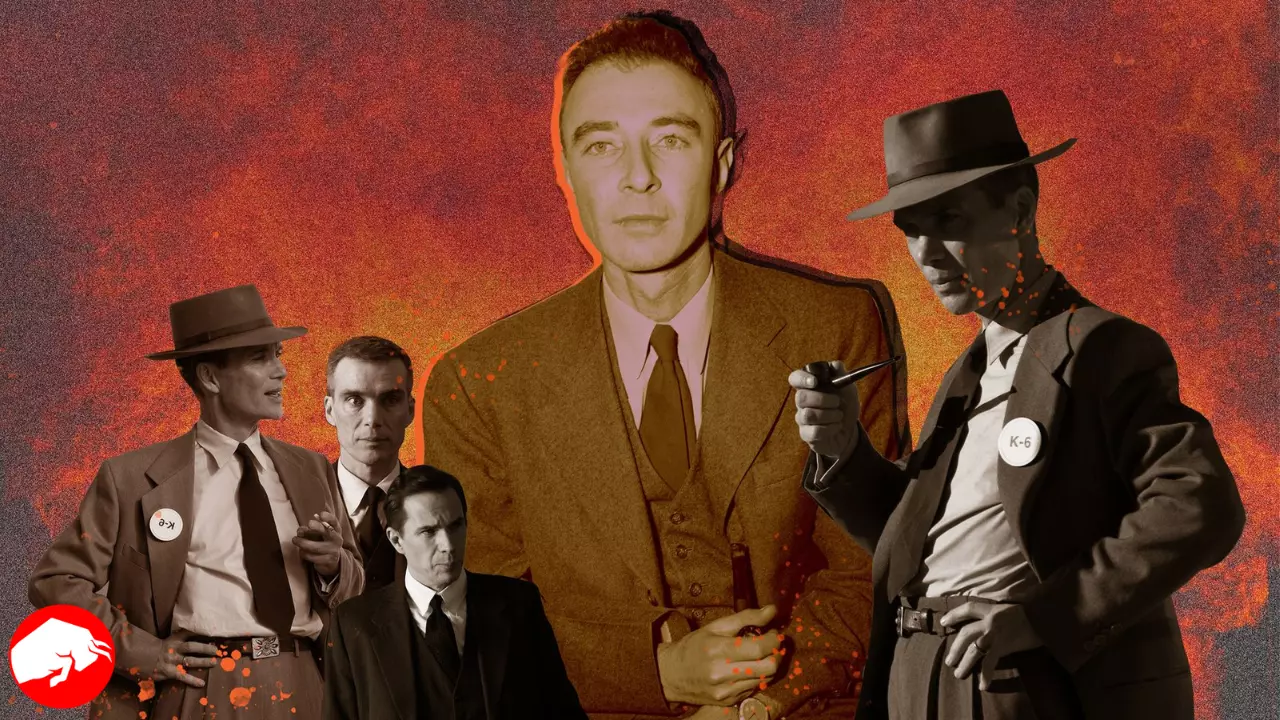Christopher Nolan, acclaimed for his intricate narratives and cinematic mastery, has once again captured the attention of audiences worldwide with his latest project, Oppenheimer. This film offers a deep dive into the enigmatic and layered life of J. Robert Oppenheimer, who is often heralded as “the father” of the atomic bomb. Drawing inspiration from the Pulitzer Prize-winning literary work, American Prometheus by Kai Bird and Martin J. Sherwin, Nolan crafts a detailed portrayal of Oppenheimer’s journey, both as a scientist and as a man.
The narrative, filled with twists and turns, unveils many lesser-known details and events of Oppenheimer’s personal and professional life, offering viewers a fresh perspective on a historical figure they thought they knew. Cillian Murphy, with his riveting performance in the titular role, adds depth and nuance, making the biopic not just informative, but also intensely gripping. As with any biographical film, there are questions about its authenticity: how much of the story has been magnified for cinematic appeal, and how much truly mirrors the facts?
The Shocking Attempt to Poison a Teacher

In the film, audiences are privy to a particularly intriguing segment of young Oppenheimer’s life during his time at Cambridge, where he is depicted under the mentorship of esteemed physicist Patrick Blackett. The narrative takes a dark turn when, in an act of evident resentment, Oppenheimer is shown placing an apple tainted with cyanide on Blackett’s desk, signaling a desperate act of defiance. What might seem like an extravagant movie plot twist to some, is, in fact, rooted in reality.
Renowned biographer Ray Monk delves deep into this unsettling episode in his comprehensive book, Robert Oppenheimer: A Life Inside the Center. Through his meticulous research, Monk corroborates the veracity of this incident.
That being said, the film does take some artistic liberties. A suspenseful moment is introduced when Niels Bohr is depicted on the brink of taking a bite of the poisoned apple. Contrary to the cinematic portrayal, in the real sequence of events, the apple was fortuitously found by vigilant school staff members before any potential tragedy could ensue.
Monk’s account further reveals the aftermath of this harrowing incident. Interestingly, the university authorities chose discretion over public scandal. The entire matter was quietly swept under the rug, keeping Oppenheimer’s reputation largely intact. However, the repercussions for the young scholar were not entirely absent. While he avoided the extreme consequence of expulsion, he did face disciplinary actions. Oppenheimer was subsequently placed on strict probation and was mandated to seek regular psychiatric counseling to address and understand the motivations behind such a drastic act.
Oppenheimer: The Ladies’ Man?

In the cinematic portrayal, Oppenheimer is distinctly labelled as a “womaniser”. The biopic takes audiences on a detailed journey through the physicist’s intricate web of romantic entanglements, with a significant focus on his intense relationship with psychiatrist Jean Tatlock, brought to life on screen by the talented Florence Pugh. Drawing inspiration from American Prometheus, the film hints at Oppenheimer’s propensity to engage in multiple romantic affairs concurrently, painting a picture of a man enmeshed in both the complexities of nuclear physics and the intricacies of the human heart.
However, diving deeper into the authenticity of this portrayal, Ray Monk, in a candid interview with The Telegraph, provides a slightly different perspective. While acknowledging Oppenheimer’s undeniable charm and striking good looks that might naturally attract attention, Monk raises questions about the extent of the physicist’s romantic escapades. He implies that the label of “womaniser” could be a touch theatrical, emphasizing that Oppenheimer, despite personal dalliances, maintained a commendable level of professionalism in his career.
The portrayal of Oppenheimer’s marital life in the film is equally evocative. His union with Katherine “Kitty” Oppenheimer, embodied by the versatile Emily Blunt, is shown as a blend of passion, commitment, and undeniable strain. The narrative does not shy away from spotlighting Oppenheimer’s extramarital affair with Tatlock, especially during the intense and demanding phase of the A-bomb research, adding a layer of personal conflict against the backdrop of monumental historical events.
The mysterious and heart-wrenching circumstances of Tatlock’s untimely death, coupled with swirling rumors of espionage, betrayal, and a potential intelligence cover-up, infuse the story with suspense and emotional gravity. These cinematic choices find grounding in the insights provided by the authors of “American Prometheus”, emphasizing that the film, while dramatized, often treads closely to the real tapestry of events.
The Oppenheimer Parenting Chronicles
Set against the monumental and intense milieu of atomic bomb research, the tumultuous personal lives of the Oppenheimers come into sharp focus. The film delves deeply into the emotional strain and tumult experienced by the family, especially at times when Oppenheimer’s fervor for his groundbreaking work overshadowed his responsibilities at home.
Absorbed in the groundbreaking intricacies and profound implications of his research, Oppenheimer often found himself distant from familial bonds, inadvertently leaving Kitty to shoulder the overwhelming weight of parenting alone. Her heartrending battles with postpartum depression, compounded by a growing dependency on alcohol, are depicted with raw intensity and sensitivity in the film, painting a portrait of a woman battling internal demons while the world outside is on the brink of unparalleled change.
A particularly poignant moment in the narrative emerges when Oppenheimer, engulfed in guilt and helplessness, ponders the thought of relinquishing the custody of his son to his close confidant, Haakon Chevalier. This cinematic representation is only a glimpse into the deeper emotional challenges the family faced. The realities were even more intricate and heart-wrenching. Following the birth of their daughter Katherine, in a desperate move, Kitty entrusted the care of their son to her own parents.
Concurrently, their infant daughter Katherine was placed under the care of a family friend, Pat Sherr. One of the most gut-wrenching revelations from “American Prometheus” underscores Oppenheimer’s profound emotional turmoil. He actually considered relinquishing his rights as a father, believing he was incapable of offering the depth of love and care his daughter Katherine rightfully deserved.

Christopher Nolan’s Oppenheimer serves as an evocative exploration into the life of a man who changed the course of history. While cinematic liberties are an intrinsic part of any biopic, Nolan has managed to stay remarkably true to many facets of Oppenheimer’s life, bringing to light the riveting and often tumultuous journey of a scientific genius.









